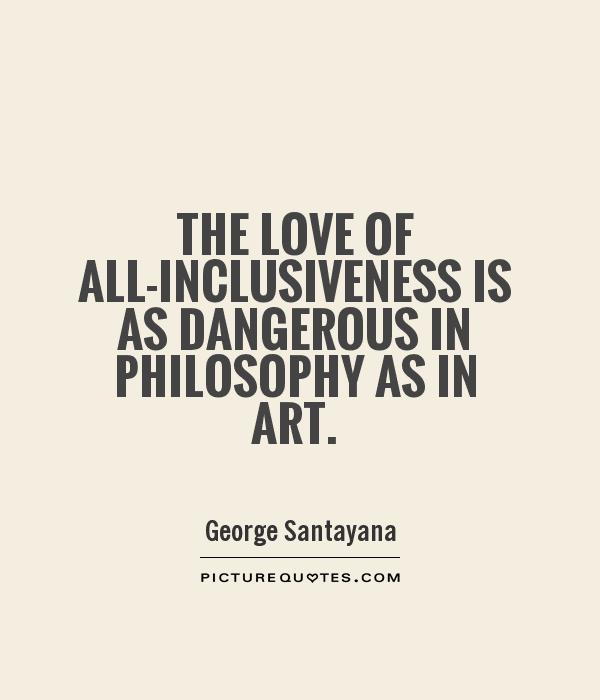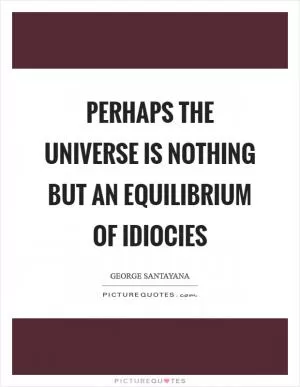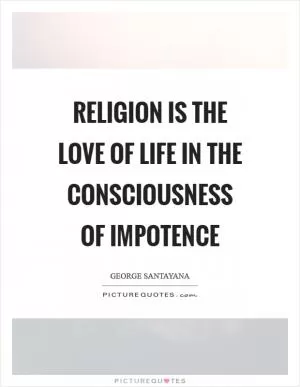The love of all-inclusiveness is as dangerous in philosophy as in art

The love of all-inclusiveness is as dangerous in philosophy as in art
The love of all-inclusiveness in philosophy can be just as dangerous as it is in art. While it may seem noble to strive for a comprehensive understanding of the world and all its complexities, the pursuit of all-inclusiveness can lead to oversimplification, distortion, and ultimately, a lack of depth in philosophical thought.In philosophy, the desire to encompass all perspectives and ideas can result in a superficial treatment of complex issues. By trying to include every possible viewpoint, philosophers may end up diluting their arguments and failing to engage deeply with the nuances of a particular topic. This can lead to a lack of critical analysis and a tendency to gloss over important details in favor of a more general, all-encompassing approach.
Furthermore, the pursuit of all-inclusiveness in philosophy can also lead to a form of relativism, where all ideas are considered equally valid and no distinctions are made between truth and falsehood. This can result in a lack of intellectual rigor and a reluctance to make judgments or take a stand on controversial issues. In essence, the love of all-inclusiveness can lead to a philosophical paralysis, where no progress is made and no meaningful conclusions are reached.
In art, the danger of all-inclusiveness lies in the potential for homogenization and the loss of individuality. When artists strive to include all possible influences and styles in their work, they run the risk of diluting their own unique voice and vision. This can result in a lack of originality and creativity, as artists may become more focused on imitating others rather than expressing their own ideas and emotions.
Similarly, in philosophy, the love of all-inclusiveness can stifle creativity and innovation. By trying to encompass all possible perspectives, philosophers may limit their ability to think outside the box and explore new ideas. This can result in a stagnation of philosophical thought and a reluctance to challenge established beliefs and assumptions.












 Friendship Quotes
Friendship Quotes Love Quotes
Love Quotes Life Quotes
Life Quotes Funny Quotes
Funny Quotes Motivational Quotes
Motivational Quotes Inspirational Quotes
Inspirational Quotes